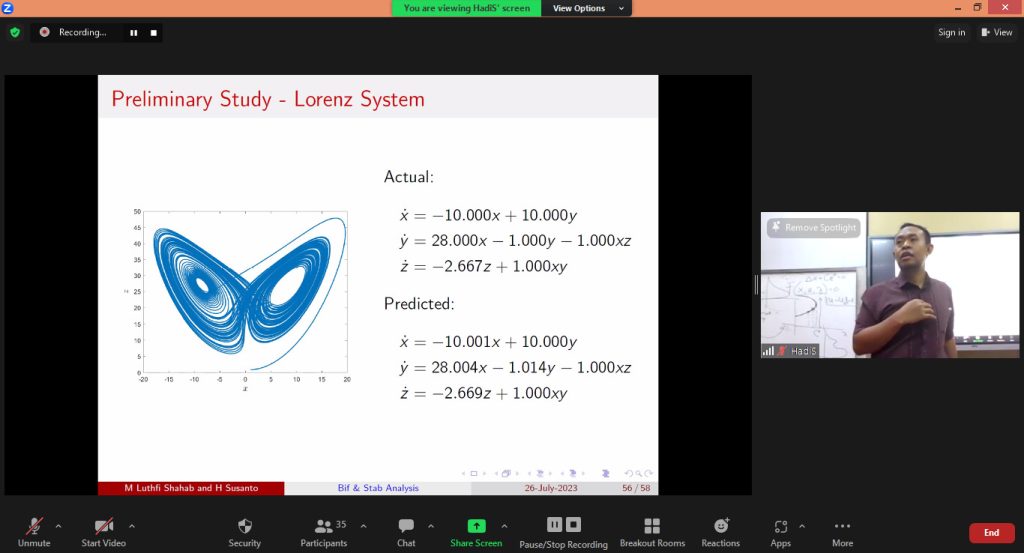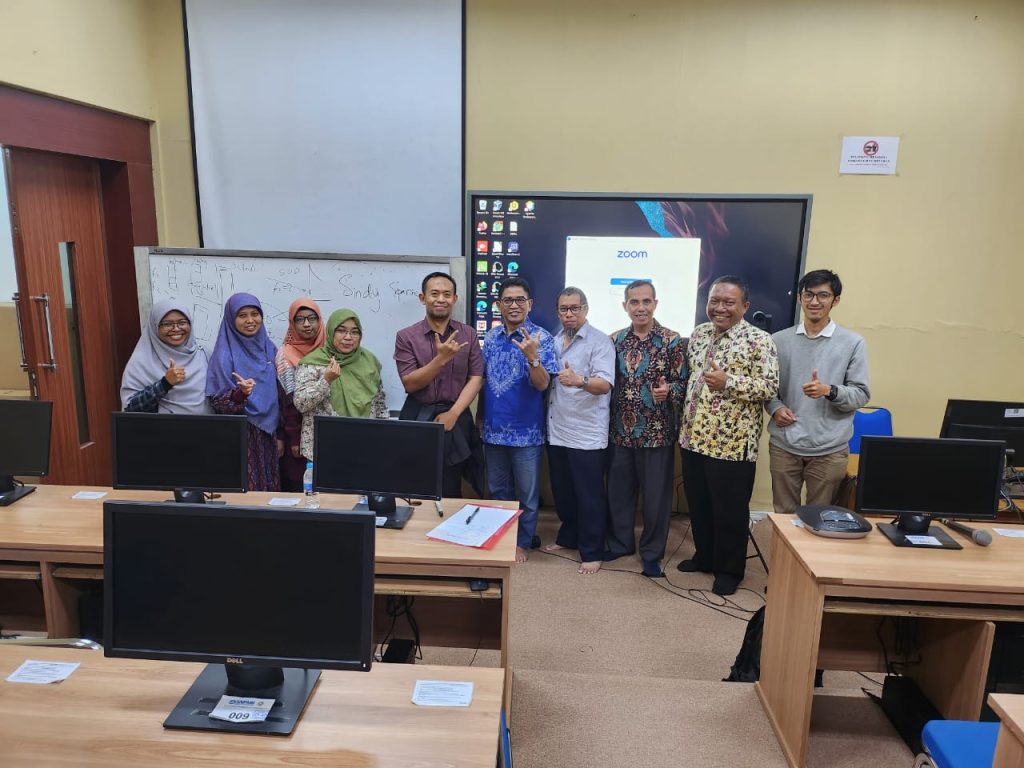The Mathematics Study Program hosted a Guest Lecture featuring lecturers from overseas institutions, focusing on the topic “Machine Learning and Dynamical Systems” as part of the System Modelling Research Group (KBK) event. The distinguished speaker for this lecture was Prof. Hadi Susanto from Khalifa University in the United Arab Emirates. Prof. Susanto, a Mathematics graduate from the Bandung Institute of Technology (ITB) with postgraduate studies at the University of Twente in the Netherlands, has a rich academic background. Before joining Khalifa University, he held positions as a Visiting Assistant Professor at the University of Massachusetts and a lecturer in Applied Mathematics at the Universities of Nottingham and Essex.
The Guest Lecture aimed to provide participants with insights into the latest research developments in the intersection of Machine Learning and Dynamic Systems. The event, conducted in a hybrid format over two hours, attracted participants from various Indonesian universities, including ITB, Bina Nusantara University, Kalimantan Institute of Technology, Billfath University, Asia Institute of Technology and Business Malang, National Cyber and Password Polytechnic, UIN Sunan Kalijaga, Bhayangkara University Jakarta Raya, Bina Bangsa University, Bina Nusantara University, Gorontalo State University, Padang State University, Surabaya State University, Padjadjaran University, and Udayana University.


During the lecture, Prof. Hadi Susanto elaborated on the numerous advantages of employing machine learning to address challenges in Dynamic Systems. He highlighted the increased efficiency of machine learning compared to traditional mathematical calculation methods like Finite Difference. Prof. Hadi emphasized, “If we use the traditional Finite Difference method, we must calculate far more variable values than if we use a Neural Network.” He provided an example where Finite Difference would require computing 9801 variables for 100 intervals in the x and y directions, while a neural network would need only 151 variables.
Prof. Hadi’s research indicated that, for the same number of variables, simulations using neural networks closely approximate analytical solutions compared to Finite Difference. He underscored that neural networks achieve similar precision to finite differences while requiring fewer variables. This suggests that the use of neural networks presents a more efficient alternative solution to challenges in dynamic systems.

The visit of Prof. Hadi Susanto to UNAIR also aimed to inspire students to pursue further studies overseas, and he shared information about the prospects for foreign students, particularly Indonesians, to study at Khalifa University during the concluding segment of the activity.
